Hawaii’s Biki outreaches to youth through bike share
by Stefani Cox
May 21, 2019
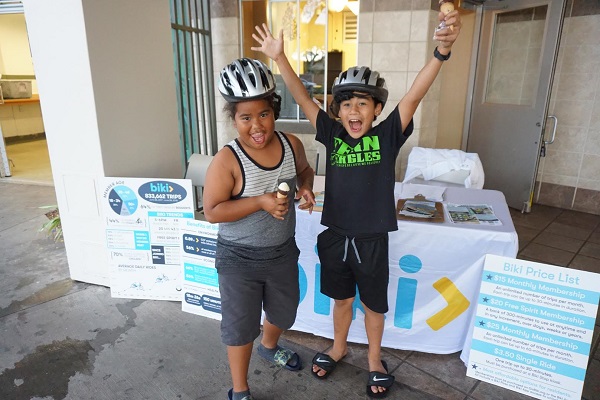
Source: Bikeshare Hawaii.
It can be all too easy to forget about younger demographics when coordinating bike share outreach efforts, but in Honolulu, youth come first.
Bikeshare Hawaii is no stranger to approaching their work through the lens of age. Last year, the operator conducted targeted workshops with individuals over the age of 50, thanks to a grant from the AARP.
“The AARP grant has been a good foundation of what we need to do to get people excited and comfortable about being on a bike again,” said Justine Espiritu, Grants and Programs Manager with Bikeshare Hawaii. “Important components are familiarizing them with the technology (the station and the Biki App), familiarizing them with the service area, and pointing them to free resources and workshops that focus on safety, etiquette, and where to ride based on their comfort level. We use that as a foundation, and try to plug it into work with our partners.”
Bikeshare Hawaii has since opened its doors to community youth, which means face-to-face engagement, investigating ambassador programs, and broadening marketing to include younger people.
“If we can get youth knowledgeable and excited about bike share, then when they turn 16, maybe instead of expecting a car from their parents or putting their savings towards that, they’ll consider the bikes as an option,” said Espiritu.
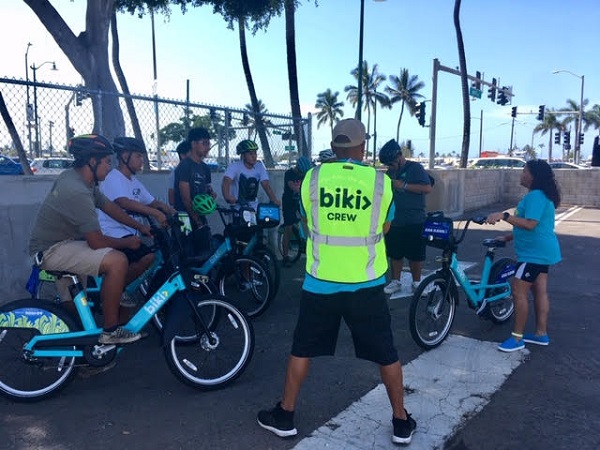
Source: Bikeshare Hawaii.
Under the BBSP grant, Bikeshare Hawaii partnered with Kalihi Valley Instructional Bike Exchange to give a tour of Biki’s warehouse and provide a tutorial on the stations and bike features. Youth also had a chance to try the bikes out for themselves. The experience with bike share bikes was distinct from the homemade bikes that youth work on through volunteer hours at KVIBE.
The event gave both Bikeshare Hawaii and the youth time to brainstorm how they would use the mobility resource. Ideas ranged from biking to friends and with family, to getting to school, as well as using the bikes as a tool to stay healthy.
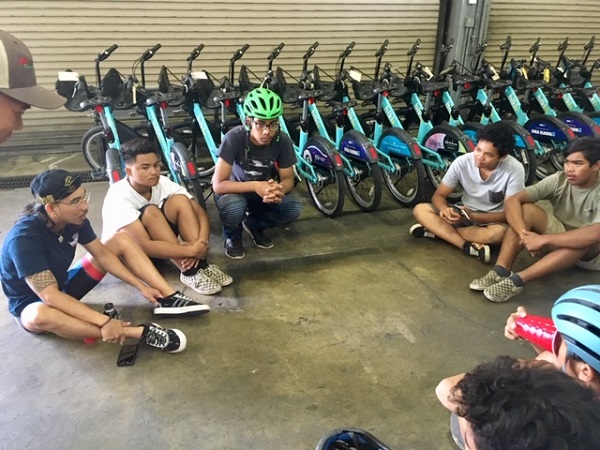
Source: Bikeshare Hawaii.
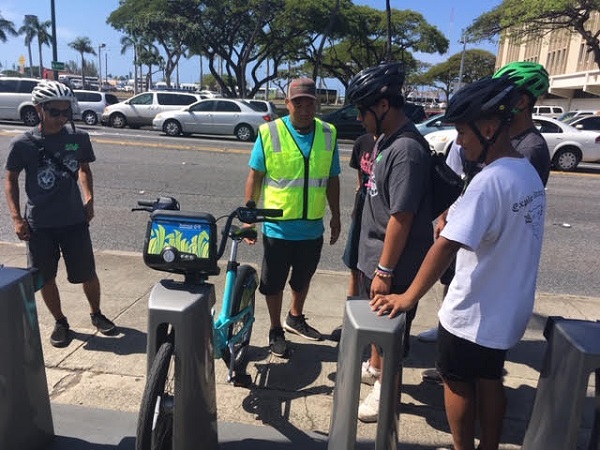
Source: Bikeshare Hawaii.
In the future, Bikeshare Hawaii hopes to develop workforce opportunities between KVIBE and Biki.
“It could be through developing an ambassador program together, especially as Biki considers expanding closer to Kalihi,” said Espiritu. “Or through an apprenticeship under Mechanics, or supporting bike advocacy efforts. For instance, KVIBE kids played a big role in advocating for a road diet on Kam IV road.”
Bikeshare Hawaii has also hosted youth rides with the Youth Services Center housed within the Department of Community Services, and with the Hawaii Bicycling League.
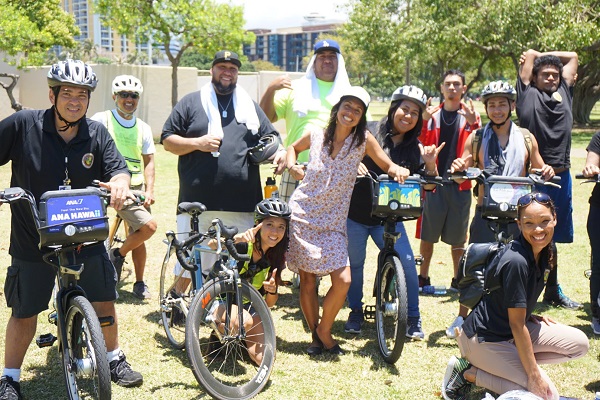
Source: Bikeshare Hawaii.
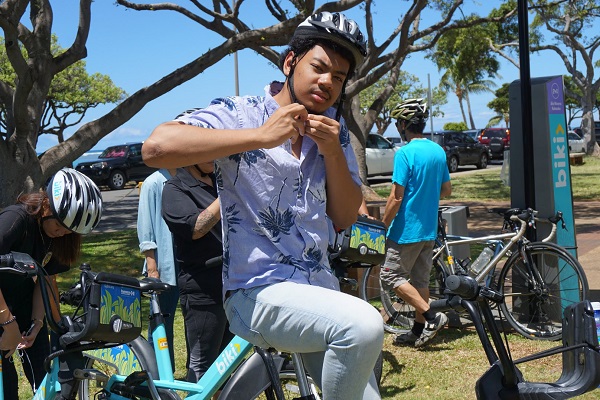
Source: Bikeshare Hawaii.
Additionally, the operator seeks to reach public housing sites, and is collaborating with the Blue Planet Foundation’s Changemakers 2019 campaign for middle and high school students interested in supporting a 100% clean energy future.
When asked about advice for working with youth, Espiritu recommended face-to-face conversations and on-site tutorials at stations.
“For Hawaii, those conversations often include combining an environmental, public health, and cost of living angle,” said Espiritu. “First you get people comfortable with the bike and where to ride, then get them excited about getting around easier, being active, and having another way to experience and be immersed in this beautiful environment and community, at lower cost to the environment and their transportation budget.”
Stay tuned for more introductions to the work of our 2019 mini-grantees!
The Better Bike Share Partnership is funded by The JPB Foundation as a collaborative between the City of Philadelphia, the Bicycle Coalition of Greater Philadelphia, the National Association of City Transportation Officials (NACTO) and the PeopleForBikes Foundation to build equitable and replicable bike share systems. Follow us on Facebook, Twitter and Instagram or sign up for our weekly newsletter. Story tip? Write stefani@betterbikeshare.org.
